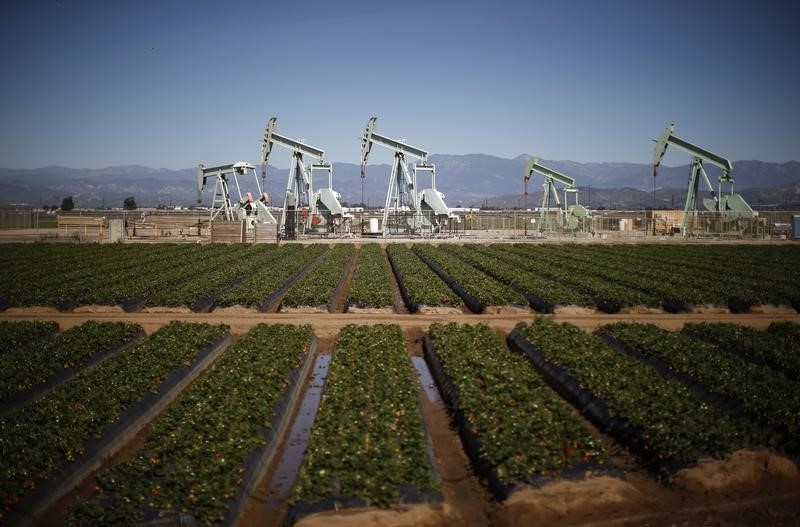By Libby George
LONDON (Reuters) - Crude oil futures fell on Friday, bringing losses this month to more than 8 percent, as disappointing Chinese data and worries over a supply glut overshadowed geopolitical concerns.
The dollar, near nine-month highs versus a basket of other currencies, also weighed on oil. Strength in the greenback makes oil more expensive for holders of other currencies.
Brent crude fell by 5 cents to $45.41 per barrel by 1311 GMT, after settling down 71 cents at $45.46 in the previous session. It traded as low as $44.80 earlier in the session.
West Texas Intermediate (WTI) futures, the U.S. crude benchmark, fell by 75 cents to $42.29 per barrel. Trading in U.S. futures was muted due to holidays in the country.
Both crude contracts were on track for small weekly gains, but were down by roughly 9 percent since the start of November.
Bjarne Schieldrop, chief commodities analyst at SEB in Oslo, said shaky Chinese economic data was the primary driver of the price weakness.
Chinese shares slumped 5 percent on Friday, hit by regulatory worries and declining industrial sector profits. [MKTS/GLOB]
Worrying economic indications in the world's largest energy consumer typically filter quickly through to oil prices, particularly given the nagging global surplus of physical oil.
But Schieldrop added that the shooting down of a Russian jet by the Turkish military this week had gone from being a geopolitical risk concern to worries about falling oil demand due to potential economic sanctions.
"Rather than being bullish ... it's now bearish for marginal demand," Schieldrop said.
Russia threatened economic retaliation against Turkey on Thursday and said it was still awaiting a reasonable explanation, but Turkey dismissed the threats as "emotional" and "unfitting".
The market is also shifting its focus to a meeting of ministers from the Organization of the Petroleum Exporting Countries, which is set for Vienna on Dec. 4. Thus far, market observers say that the group is determined to keep pumping oil vigorously despite the resulting financial strain. Still, some said a surprise was not out of the question.
"The futures forward price curve and many bank forecasts are indicating that there is no relief next year with the Brent price averaging $5 to 7 below this year's average," PVM's David Hufton said in a note, adding the revenue impact of current prices has been "disastrous".

"The meeting promises to be very lively and acrimonious. There may even be walkouts ... and it could still spring a very unlikely surprise."